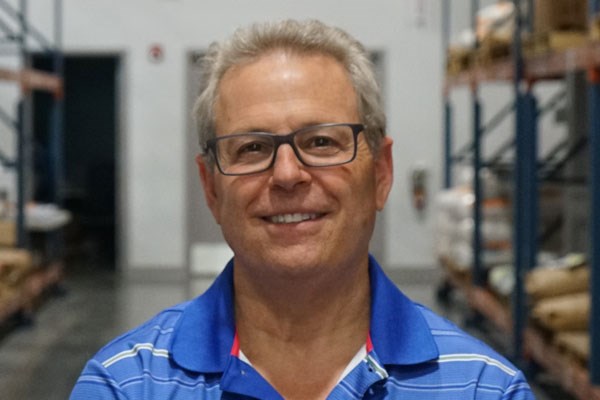Alum’s Foster Corp. Creates Custom Polymers for Medical Devices

09/01/2024
By Katharine Webster
Fun with Creepy Crawlers—a 1960s Mattel toy that let kids make rubbery insects by squeezing colorful “Plasti-Goop” into metal molds and baking them—may have been one inspiration for Larry Acquarulo’s decision to major in plastics engineering at UMass Lowell, he says.
Another was working alongside his older brother, Dominic ’80, for their dad, an electrical contractor, on loud, dirty job sites while they were still in high school.
“You saw these folks pulling up in nice cars, wearing nice clothes, talking to the supervisors and then driving off again,” says Acquarulo, a 1981 graduate. “We asked, ‘Who are those people?’ Our dad said, ‘The engineers, checking our work.’ My brother and I looked at each other, both thinking, ‘That looks like a good job!’, and decided we wanted to be engineers.”
Today, Acquarulo is co-founder and CEO of Foster Corp., a Putnam, Connecticut-based company that makes customized medical plastics. While the bulk of the company’s business is in catheters, including ultrathin antimicrobial tubing used for preterm babies in pediatric ICUs, Acquarulo and Foster’s other engineers have invented everything from a microscopic fiber that can repair brain aneurysms to plastic surgical screws that stimulate bone growth while being reabsorbed.
“Customers still ask us to do things we’ve never done before,” Acquarulo says. “That’s been the hallmark of our company: We will take a look at almost any kind of application and see if we can figure it out.”
Acquarulo got into medical plastics through inspiration, chance and hard work. At his high school in New Haven, Connecticut, a guidance counselor handed him a well-thumbed catalog for what was then the University of Lowell. The description of plastics engineering caught his attention.
“They molded us all into pretty darn good plastics engineers!” -Larry Acquarulo ’81
He got more excited about plastics after a visit to campus, where he met the Plastics Engineering Department chair and future dean, the late Prof. Aldo Crugnola, who helped develop the artificial hip. Acquarulo immediately liked the department. “It felt like family. It was about ‘Here’s what we do together,’ and that’s what attracted me,” he says.
Once on campus, Acquarulo joined the club football team as a walk-on, and soon he was invited to join the Pi Lambda Phi fraternity. After just one semester, he persuaded his brother, a mechanical engineering major, to transfer to UML from Northeastern University.
Both moved back to Connecticut after college, and Acquarulo went on for a master’s degree at the University of Connecticut while working full time. Initially a research and development engineer, he rose to a marketing position at LNP Engineering Plastics, where he assisted customers seeking customized plastics for medical applications, including his fraternity brother Jim Dandeneau ’80, founder and CEO of Putnam Plastics in Dayville, Connecticut.
When LNP was acquired by another company, which began winding down the custom medical polymers business, Acquarulo went out on his own with Dandeneau’s support.
Acquarulo rented an old garage and, with Dandeneau’s help, bought a secondhand extruder from a company where he had interned under Chuck O’Neil ’74. Acquarulo tapped his fraternity and football connections for business, including Mark Saab ’81, founder of Advanced Polymers in Salem, New Hampshire.
“I’d fix up the machine, come up with the formula, run the machine, and then package and label the product,” Acquarulo recalls. “I absolutely loved what I was doing. It was like playing.”
After six months, he was able to hire two more people. After six years, he could afford to hire O’Neil, his former mentor. As Foster grew, Acquarulo began studying business management and strategic innovation to keep up.
Three decades on, Foster has 190 employees, $75 million in annual sales and a second manufacturing plant in Nevada. UMass Lowell undergraduates intern at Foster, graduate students work on research and development, and UML faculty sometimes consult. Acquarulo returns the favor, sitting on two advisory boards for the Francis College of Engineering and donating to the school that gave him his start.
“We had a passionate, all-star team of professors who inspired us to work hard, solve problems and have fun with this amazing material,” he says. “They molded us all into pretty darn good plastics engineers!”
